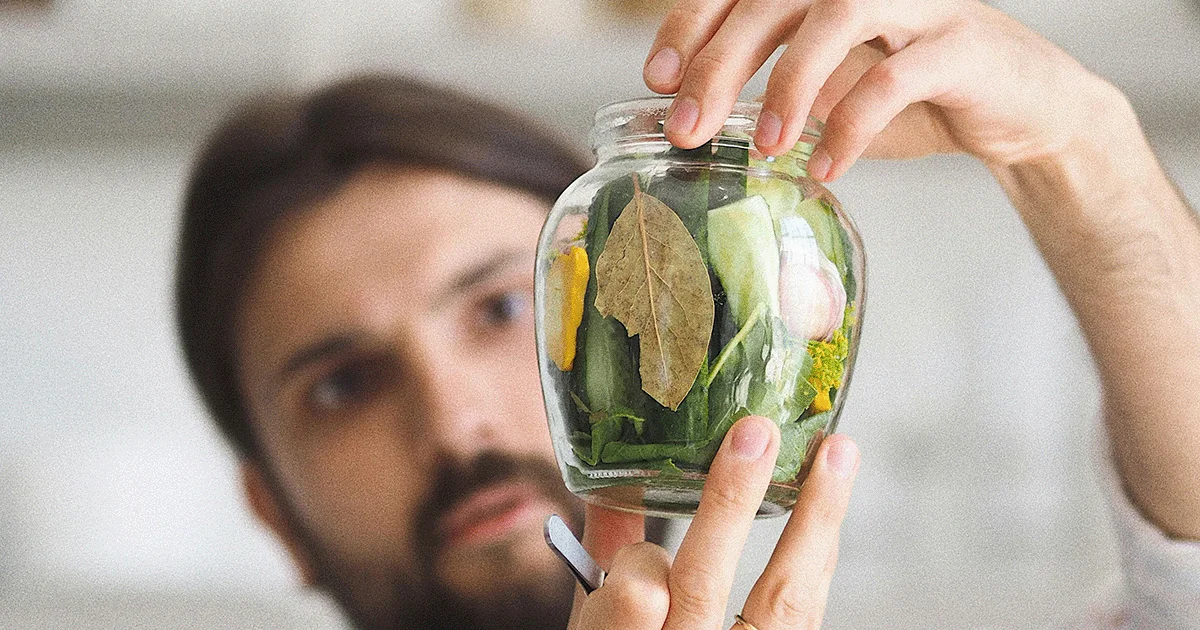Here's what we'll cover
Here's what we'll cover
The chances are high that you’ve probably consumed caffeine in some form today. After all, it is one of the most widely consumed substances in the world. Almost every culture on earth consumes caffeinated beverages or other sources of the stimulant (Temple, 2017).
Needless to say, it’s pretty popular. So, what makes caffeine so enticing? And is that morning cup of coffee actually good for you? Let’s take a look at why we have such an affinity for this substance, what it does to our bodies, and whether there’s a limit to how much caffeine we should consume.
What is caffeine?
Caffeine (which also goes by the name methylxanthine) is a stimulant. That means it can increase activity in the brain and central nervous system, including ramping up your heart rate (Fiani, 2021). Caffeine is also sometimes referred to as a “psychoactive agent,” which means it can affect how you think or feel (Temple, 2017).
It is an organic molecule found naturally in the seeds, fruits, and leaves of some plants, such as cacao (chocolate) and coffee beans (van Dam, 2020).
How does caffeine work?
There’s evidence that caffeine does three distinct things inside your brain and body.
First, it can change the behavior of receptors in your brain. Specifically, it seems to block the ability of some brain neurotransmitters (a.k.a., chemical messengers) to attach to adenosine receptors. This blockage can change the activity of brain chemicals that play a role in sleep, memory, alertness, and other cognitive states or functions (Fiani, 2021).
Second, caffeine seems to change the way calcium moves inside the cells of your central nervous system. This change can alter the activity of some neurotransmitters, which can affect how you think or feel.
Finally, caffeine appears to block the action of certain brain enzymes. By preventing these enzymes from breaking down other brain chemicals, caffeine can indirectly shift the levels or activity of neurotransmitters associated with mood, memory, and cognitive functioning (Fiani, 2021).
Food and drink sources of caffeine
Caffeine is in a variety of foods and beverages, and the content of caffeine in any one food or beverage can fluctuate. The caffeine content in coffee, for example, depends on things like how someone prepares their coffee and how the beans they’re using have been roasted (van Dam, 2020)
As a rough guide, here are the common caffeine levels found in different foods and caffeinated drinks (van Dam, 2020):
12 oz. of coffee-shop coffee: 235 mg
12 oz. of home-brewed coffee: 138 mg
1 oz. of espresso: 63 mg
8 oz. of black tea: 47 mg
8 oz. of green tea: 28 mg
12 oz. soft drink: 32 mg
8.5 oz. energy drink: 80 mg
2 oz. energy “shot”: 200 mg
1 oz. of dark chocolate: 24 mg
1 oz. milk chocolate: 6 mg
How much caffeine is too much?
The effects of caffeine seem to differ from one person to the next. But, when trying to figure out how much caffeine you can have in a day, research to date suggests the following daily intakes are safe (EFSA, 2015; Heckman, 2010):
For healthy adults: up to 400 mg (that's about four cups of coffee)
For women who are breastfeeding or pregnant: up to 200 mg–300 mg (NLM, 2021)
For children: the research is incomplete. There’s evidence that children who consume small amounts of caffeine are not at risk, but there’s not enough good data to make safety recommendations. Medical expert groups generally discourage the consumption of caffeinated sports and energy drinks by children and adolescents (Schneider, 2011).
Caffeine doesn’t always come in the form of coffee or tea. The FDA has warned about caffeine powders or liquids with extremely high and toxic levels of caffeine. Just one teaspoon of some powdered products has as much caffeine as about 28 cups of coffee which can cause serious health problems and possibly death (FDA, 2018).
Is caffeine good for you?
In the past, people have worried that caffeine may be bad for the heart. But more recently, a lot of research has linked caffeine—especially when consumed in coffee or tea—to a number of positive health effects (van Dam, 2020).
However, it’s important to point out that a lot of the research on caffeine’s helpful effects has looked at coffee, tea, or chocolate instead of pure caffeine. These foods and drinks contain other potentially healthy compounds, so their positive effects may not be due to caffeine (van Dam, 2020).
Research has turned up the following health effects:
Cognitive performance: Caffeine in moderate doses—between 40 and 300 mg—can improve alertness and attention, reduce drowsiness, and improve reaction time. It can also help strengthen your focus during long, boring tasks. These benefits may be more noticeable if you’re sleep-deprived (van Dam, 2020).
Pain relief: Caffeine may strengthen the effects of pain relievers. For example, research has found that adding 100 to 130 mg of caffeine to painkillers like ibuprofen can improve their efficacy (Baratloo, 2016).
Weight management: Some work has found that people who consume caffeine on a daily basis may gain slightly less weight over time than those who don’t. This may be because caffeine can mildly boost the amount of energy the body burns. However, the use of caffeine for weight loss isn’t supported by current evidence (van Dam, 2020).
Parkinson’s disease risk: Animal models and research in people has found that caffeine may lower your risk for Parkinson’s disease. This benefit did not show up among people who drink decaffeinated coffee, suggesting that the benefits are specifically related to caffeine (van Dam, 2020).
Dementia risk: There’s speculation—but not good evidence—that caffeine may also reduce your risk for other neurodegenerative conditions such as dementia or Alzheimer’s disease (van Dam, 2020).
Athletic performance: Research has found that caffeine may improve finishing times among runners. That work showed that consuming 6 mg of caffeine per kg of body weight—that works out to about 400 mg for a 150-pound person—led to this speed improvement (Ribeiro, 2017).
Risks and side-effects of caffeine
Caffeine also comes with some downsides and potential adverse effects. These negative effects include:
Insomnia
Drinking caffeine too late in the day or in heavy amounts can cause insomnia or poor-quality sleep in some people. How much is too much varies from person to person and may depend on genetic and metabolic factors. Some evidence suggests that the sleep of both older adults and young people may be more sensitive to the effects of caffeine (Clark, 2017).
Anxiety
Any amount of caffeine may promote or worsen anxiety in people who have related disorders, such as anxiety or bipolar disorders. Even in people who do not have a diagnosed disorder, heavy caffeine consumption, like more than 400 mg daily, can cause temporary periods of anxiety (van Dam, 2020).
High blood pressure
People who are new to caffeine may experience small increases in blood pressure, but most people’s blood pressure scores tend to return to normal within a week, even if they continue to consume caffeine (Köksal, 2017). So if you are a coffee drinker, there’s little or no acute effect on blood pressure.
However, if people are taking pure caffeine in the form of over-the-counter supplements—as opposed to in foods or drinks—some research has found that this may lead to longer-term jumps in blood pressure (van Dam, 2020).
Caffeine withdrawal
If you regularly consume caffeine, giving it up can lead to withdrawal symptoms. These include:
Headaches
Fatigue
Poor alertness or focus
Irritability
Depressed mood
Flu-like symptoms
These withdrawal symptoms tend to peak after one or two days without caffeine and usually are gone within two to nine days (van Dam, 2020).
Pregnancy effects
Some work has linked high caffeine intake to low birth weights. While there’s some disagreement about whether caffeine is truly risky, keeping intake below 200 mg a day seems to be a safe threshold for pregnant women (EFSA, 2015).
Caffeine sensitivity
Some people are more sensitive to caffeine than others. While this may be partly due to experience—tolerance to caffeine’s effects improves with use—some people are more likely than others to sleep poorly after consuming caffeine (Clark, 2017).
Also, some people may have a modest rise in blood pressure after consuming caffeine due to genetic or metabolic factors (van Dam, 2020).
Caffeine overdose
It is possible to die of an overdose of caffeine. This is rare and is almost always associated with supplements or pills containing extremely high caffeine doses (Temple, 2017).
The risk of death from caffeine ingested in coffee or tea seems to be virtually zero. That said, consuming too much caffeine can lead to a racing heart, heart palpitations, and other symptoms that can, in rare cases, lead to hospitalization (van Dam, 2020).
The bottom line is that, for most adults, caffeine appears to be safe. It also seems to come with some health benefits, especially when consumed as coffee or tea. Just keep in mind that there are potential risks and downsides, especially if you consume too much of it.
DISCLAIMER
If you have any medical questions or concerns, please talk to your healthcare provider. The articles on Health Guide are underpinned by peer-reviewed research and information drawn from medical societies and governmental agencies. However, they are not a substitute for professional medical advice, diagnosis, or treatment.
Baratloo, A., Rouhipour, A., Forouzanfar, M. M., Safari, S., Amiri, M., & Negida, A. (2016). The Role of Caffeine in Pain Management: A Brief Literature Review. Anesthesiology and Pain Medicine , 6 (3), e33193. doi: 10.5812/aapm.33193. Retrieved from https://pubmed.ncbi.nlm.nih.gov/27642573/
Cipollone, G., Gehrman, P., Manni, C., Pallucchini, A., Maremmani, A., Palagini, L., Perugi, G., & Maremmani, I. (2020). Exploring the Role of Caffeine Use in Adult-ADHD Symptom Severity of US Army Soldiers. Journal of Clinical Medicine , 9 (11), 3788. doi: 10.3390/jcm9113788. Retrieved from https://pubmed.ncbi.nlm.nih.gov/33238642/
Clark, I., & Landolt, H. P. (2017). Coffee, caffeine, and sleep: A systematic review of epidemiological studies and randomized controlled trials. Sleep Medicine Reviews , 31 , 70–78. doi: 10.1016/j.smrv.2016.01.006. Retrieved from https://pubmed.ncbi.nlm.nih.gov/26899133/
European Food Safety Authority (EFSA). (2015). EFSA Panel on Dietetic Products, Nutrition and Allergies. Scientific Opinion on the safety of caffeine. EFSA Journal 13 (5), 4102. doi: 10.2903/j.efsa.2015.4102. Retrieved from https://efsa.onlinelibrary.wiley.com/doi/pdf/10.2903/j.efsa.2015.4102
Fiani, B., Zhu, L., Musch, B. L., Briceno, S., Andel, R., Sadeq, N., & Ansari, A. Z. (2021). The Neurophysiology of Caffeine as a Central Nervous System Stimulant and the Resultant Effects on Cognitive Function. Cureus , 13 (5), e15032. doi: 10.7759/cureus.15032. Retrieved from https://pubmed.ncbi.nlm.nih.gov/34150383/
Heckman, M. A., Weil, J., & Gonzalez de Mejia, E. (2010). Caffeine (1, 3, 7-trimethylxanthine) in foods: a comprehensive review on consumption, functionality, safety, and regulatory matters. Journal of Food Science , 75 (3), R77–R87. doi: 10.1111/j.1750-3841.2010.01561.x. Retrieved from https://pubmed.ncbi.nlm.nih.gov/20492310/
Köksal, E., Yardımcı, H., Kocaadam, B., Deniz Güneş, B., Yılmaz, B., & Karabudak, E. (2017). Relationship between dietary caffeine intake and blood pressure in adults. International Journal of Food Sciences and Nutrition , 68 (2), 227–233. doi: 10.1080/09637486.2016.1226276 Retrieved from https://pubmed.ncbi.nlm.nih.gov/27589213/
National Library of Medicine (NLM). (2021). Caffeine. [Updated Apr 19, 2021]. Drugs and Lactation Database (LactMed) [Internet] . Retrieved from https://www.ncbi.nlm.nih.gov/books/NBK501467/
Ribeiro, G., et al. (2017). Acute effects of caffeine intake on athletic performance: A systematic review and meta-analysis. Revista Chilena de Nutrición , 44 (3), 283-291. doi: 10.4067/s0717-75182017000300283. Retrieved from https://pdfs.semanticscholar.org/07cc/de41a1eb34a7e8157110aa1ede6c94f7ab67.pdf
Schneider, M. Committee on Nutrition and the Council on Sports Medicine and Fitness (2011). Sports drinks and energy drinks for children and adolescents: are they appropriate? Pediatrics, 127 (6), 1182–1189. doi: 10.1542/peds.2011-0965. Retrieved from https://pubmed.ncbi.nlm.nih.gov/21624882/
Temple, J. L., Bernard, C., Lipshultz, S. E., Czachor, J. D., Westphal, J. A., & Mestre, M. A. (2017). The Safety of Ingested Caffeine: A Comprehensive Review. Frontiers in Psychiatry , 8 , 80. doi: 10.3389/fpsyt.2017.00080. Retrieved from https://pubmed.ncbi.nlm.nih.gov/28603504/
van Dam, R. M., Hu, F. B., & Willett, W. C. (2020). Coffee, Caffeine, and Health. The New England Journal of Medicine , 383 (4), 369–378. doi: 10.1056/NEJMra1816604. Retrieved from https://pubmed.ncbi.nlm.nih.gov/32706535/










